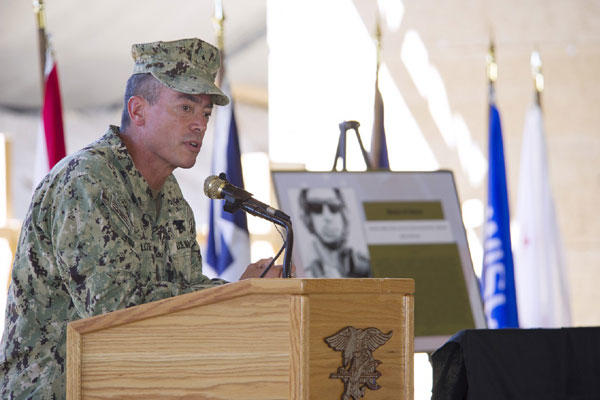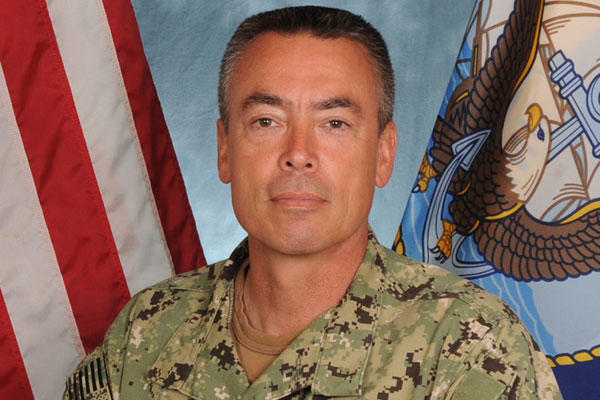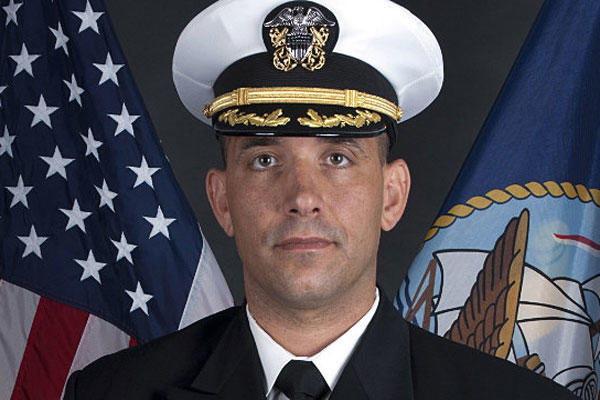The day after The New York Times published an emotional account of a SEAL commander's suicide death in Afghanistan, the admiral in charge of the SEAL community acknowledged there was room for improvement when it came to building emotional resiliency and seeking help.
Rear Adm. Brian Losey, commander of Naval Special Warfare Command, told a Washington, D.C., audience Wednesday that he was familiar with the report, which detailed the circumstances surrounding SEAL Team 4 Commander Job Price's suicide during a difficult and costly 2012 deployment.
"What then, as a friend or as a teammate, are you willing to do about that?" Losey asked. "It's about compassionate leadership as opposed to invasive leadership; it's about generating trust and confidence in each other."
Losey's comments came at the National Defense Industrial Association's annual special operations and low-intensity conflict symposium. He said operators and their families had to be cognizant of the emotional toll a career spent deploying at a high tempo could take and how symptoms of emotional stress manifest.
The Times report details how the 42-year-old Price had seemed despondent after losing four men under his command over the course of the deployment, how he struggled with physical stress and a lengthy respiratory infection, and how he had tried to camouflage any signs of trouble, even telling medics not to add a clinic visit for dehydration to his medical record. The story adds that SEAL team members have said they fear acknowledging mental health problems could damage or end their careers.
"I wouldn't tell you, from a [Naval Special Warfare] perspective, that we're hurting," Losey said. "We have issues that we need to improve upon with respect to supporting each other, destigmatization, seeking help when you think you need it, and then understanding all the symptoms that come when you're in ... for 15 years, and you've got 10 more to go."
Losey emphasized that the feeling of loss of community can be a crisis point for operators in high-stress situations.
"It's that feeling of detachment, that you've been cut away from the mother ship, that you're on your own," he said, adding that professional troubles and financial and family problems can exacerbate these feelings. "I personally am very compassionate about these types of things, making sure we're trying to reach out and making sure that our leadership does that."
The NSW community, he said, had worked in recent years to include operators' families in emotional resiliency initiatives and to provide more resources to warfighters under stress.
"Whether it's mental, spiritual, physical, there's some physiological manifestations that we can detect and work on, there's behavioral manifestations," he said. "Really, it's about being a compassionate partner with your teammate, understanding when you're seeing the stressors out there."
-- Hope Hodge Seck can be reached at hope.seck@monster.com. Follow her on Twitter at @HopeSeck.
































